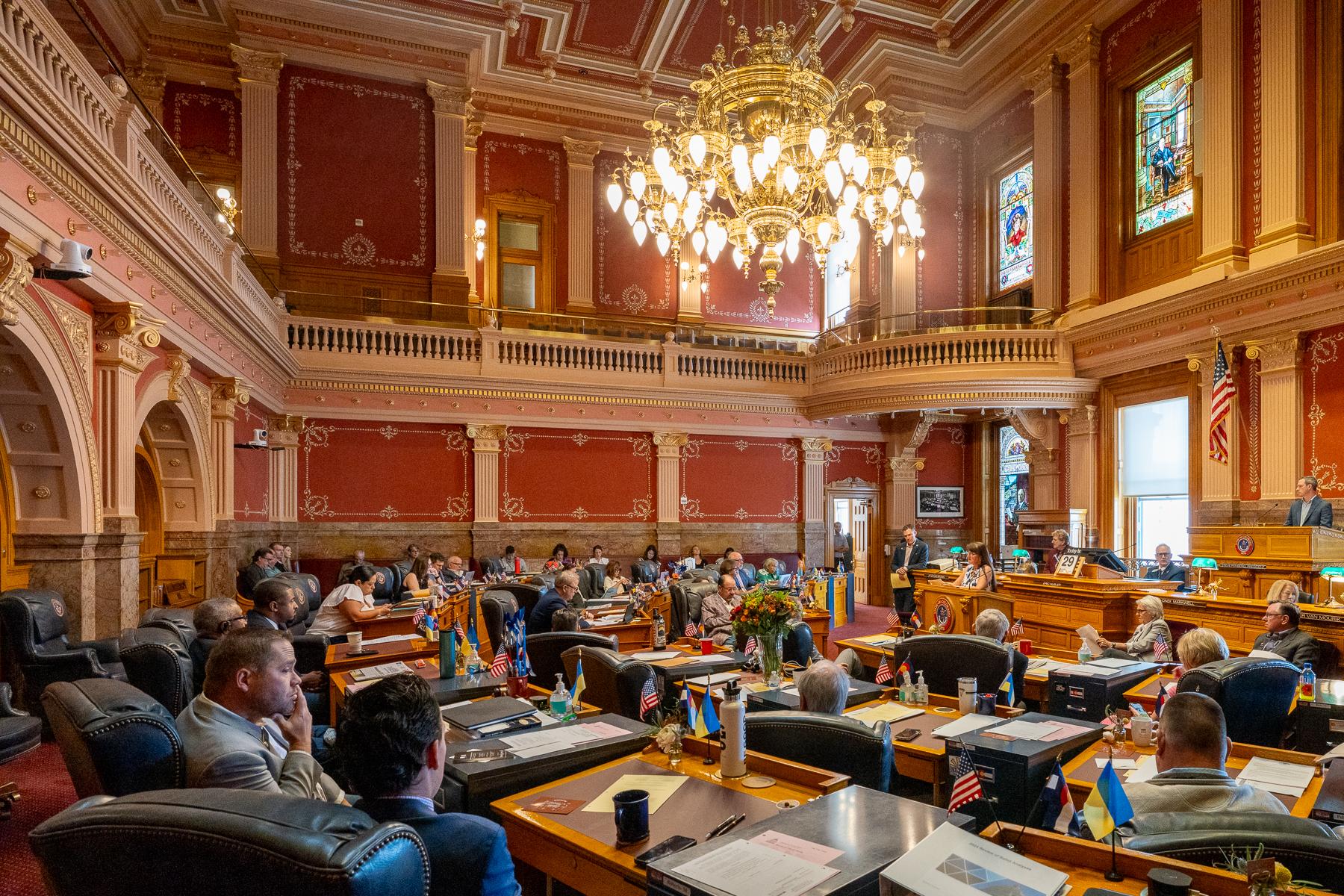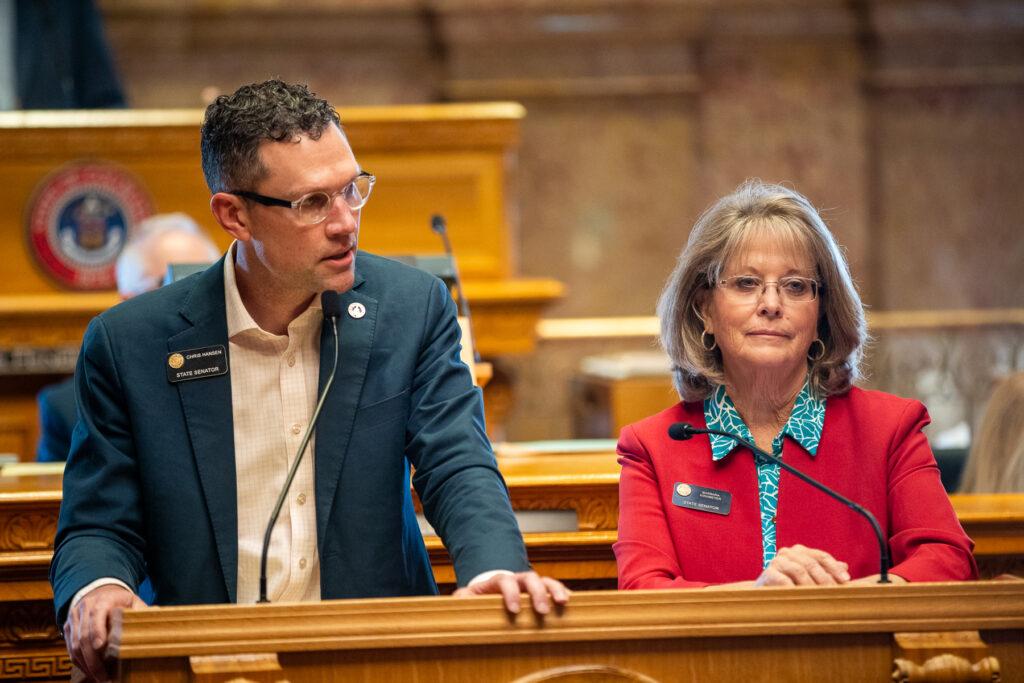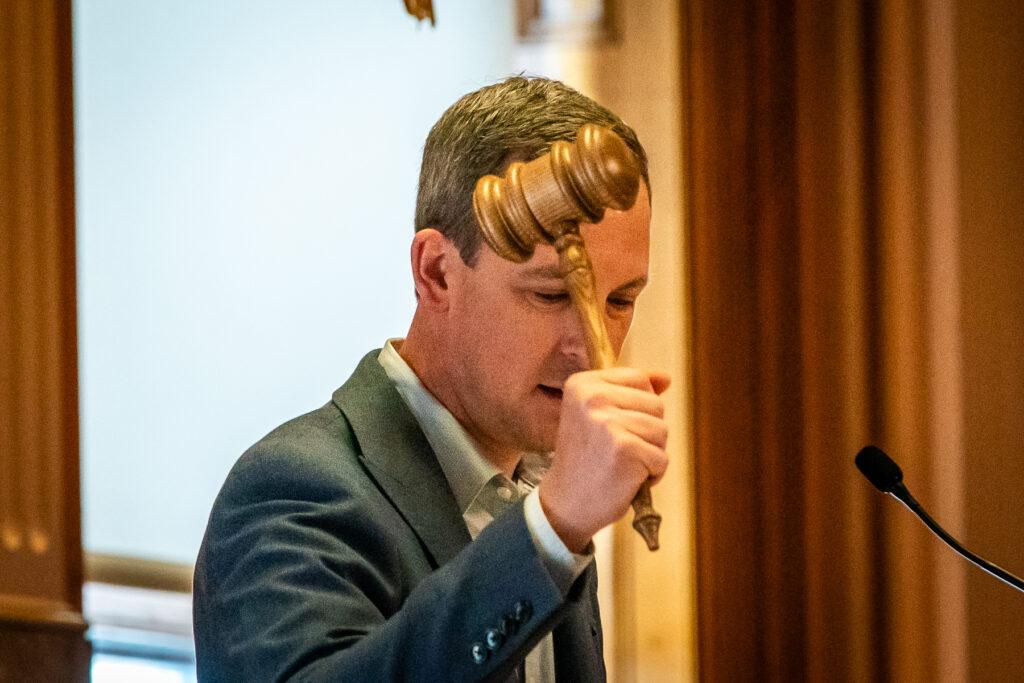
Updated at 1:10 p.m. on Thursday, Aug. 29, 2024.
Colorado’s special legislative session on property taxes has concluded, with the passage of a compromise bill to lower property tax rates and cap the growth of property tax revenues.
The deal is a source of angst for many Democratic lawmakers, frustrated by both its content and how it was developed, but backers argue it is necessary to head off two ballot initiatives that would have cut taxes significantly more.
Gov. Jared Polis called the special session after he and others reached a deal with the groups running the measures: pass smaller property tax cuts at the Capitol and the outside groups would pull their larger proposals off the ballot.
House Bill 1001 permanently reduces property tax rates for homeowners by about 2 percent. That’s a savings of about $50 for a $500,000 home in an area with average tax burden. It will have a greater impact on some non-residential owners, reducing their tax burden by about 7 percent in the near term, and more in later years. That’s about $800 for a typical $1 million property.
While some lawmakers called the agreement “extortion,” legislative leaders said they didn’t want to roll the dice on an unpredictable outcome on election night. If passed, they worried the initiatives would bite deeply into funding for key public services like schools and fire protection.

The bill passed the Senate Thursday with only four no votes.
“I believe it to be the best deal that we can do right now for homeowners, seniors, small businesses, for all property owners and yes, local governments,” said Republican Sen. Barbara Kirkmeyer. She sits on the legislature’s joint budget committee and was one of the bill’s main negotiators.

Gov. Jared Polis’ office was also part of negotiations. In a written statement he praised legislators for saving people money while at the same time protecting K-12 funding.
“I look forward to seeing the risky ballot measures pulled down and signing this legislation into law so small businesses and homeowners can keep more of their hard earned money,” Polis said.
In an earlier interview with CPR News, Polis said signing the bill is contingent on the outside groups officially removing their initiatives from the ballot.
“I want confirmation that the ballot issues are withdrawn from the Secretary of State's office prior to signing,” he said.
In a statement, proponents of the ballot measures said they were coordinating with the governor's office on withdrawing them.
“Today’s vote marks a huge win for Colorado taxpayers who have been hit with 30 percent average property tax increases,” said Michael Fields, head of Advance Colorado and the ballot campaigns. “For two years, we have said the solution taxpayers need is to cut taxes significantly and then put a cap in place so Colorado can avoid this crisis in the future. This bill gets that job done.”
What the bill does:
The biggest beneficiaries of this new policy are owners of commercial and industrial properties, which are taxed at a much higher rate than homeowners. They would receive just more than half of the tax benefits in the coming year. The cuts are specifically aimed at undeveloped commercial land and other property types that were excluded from earlier cuts.
Eventually, a typical $1 million commercial property could save more than $1,000 a year, compared to the baseline. But commercial properties still will be taxed at much higher rates than homes.
The bill also contains stricter limits on how much property taxes can grow in the future.
Lawmakers slightly lowered the cap on how much more tax money local governments can collect as property values rise; now, that revenue can only grow at most by 5.25 percent a year, down from a previous limit of 5.5 percent that was established earlier this year.
The bigger impact is on school districts, which will be restricted to only seeing their tax funding rise by six percent yearly, or more if inflation and enrollment are running high. However, local voters can choose to override those limits for schools and local governments.
The bill also requires the state’s Property Tax Commission to study how these changes, and earlier ones passed by lawmakers, impact property owners and public services.
The cuts and caps in the bill are significantly less than what is envisioned by the two ballot measures. Initiative 50 would allow the total dollars collected statewide in property taxes to grow by no more than four percent each year. Initiative 108 would sharply reduce assessment rates for homes, businesses and other properties, while requiring more state money to go to schools to make up for the lost taxes.
Initiative 108 would reduce property tax collections by an estimated $2.4 billion, compared to the rates that are currently in place. In contrast, the compromise measure is worth less than $250 million in savings to property owners.
Both sides hope for a lasting truce in the property tax wars
This was the second special session in less than a year on property taxes, and lawmakers in both parties said they don’t want to keep heading back to the capitol year after year to deal with the issue.
Despite the bill’s wide bipartisan support, even for some of the yes votes it was an upsetting choice.
Democrats described the special session as bowing to the will of moneyed outside groups and warned this latest round of cuts will mean real consequences for schools and fire districts. Democratic Rep. Meg Froelich said her yes vote was only to avoid the risk of the “cataclysmic” ballot initiatives passing.
She called the proposal she voted for “mildly nauseating and semi-cataclysmic” for schools and fire districts and rural hospitals are already struggling.
“I was sort of saying to the fire chiefs, ‘I guess you'll come if the house is on fire, but I bet all the people with the cat stuck up in the tree can just go get their own ladder.’”
- Property tax compromise passes key legislative hurdle, moves to state Senate
- Here’s how Colorado’s special session could save homeowners about 2 percent on property taxes
- One big challenge for special session: How to make the grand tax deal stick
- Polis calls special session to work out property tax compromise
- Listen: Lowering property taxes at heart of special session; State GOP in flux








